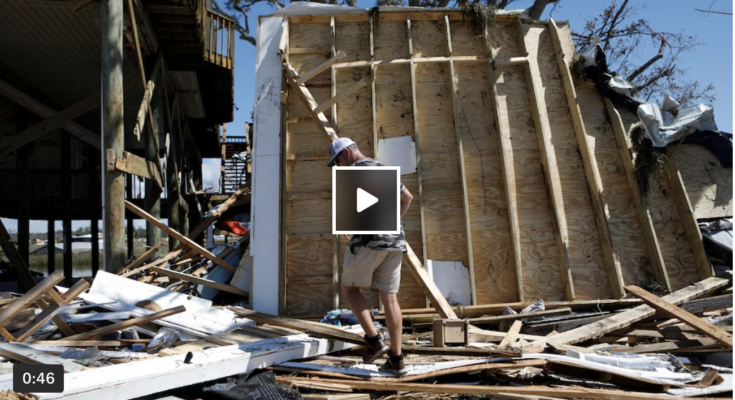Hurricane Helene flooded properties and devastated buildings in recent days as it tore across a vast stretch from Florida to Tennessee.
Over the coming days and weeks, households will start to rebuild — and the costs will be enormous. Some homeowners will struggle to afford it.
The devastation arrives after years of skyrocketing prices for home and flood insurance that have left some households without coverage and others choosing low-cost plans with weaker policies, experts told ABC News. The increase owes in part to a surge in costs for building materials as well as the risk of more frequent or intense storms posed by climate change, they said.
Homeowners at properties damaged by Helene are likely to see their insurance costs rise even further, imposing financial strain for years to come, the experts added.
“There’s no question that the burden on households’ budgets has increased in recent years,” Benjamin Keys, a professor of real estate at the University of Pennsylvania’s Wharton School, told ABC News. “It has gotten substantially more expensive to live in harm’s way.”
Helene, which made landfall in Florida’s Big Bend region Thursday night as a Category 4 hurricane, was the strongest hurricane to make landfall in the Big Bend on record.
At least 120 people have been killed by Helene, The Associated Press reported on Monday.
Helene dumped more than 30 inches of rain on North Carolina, producing produced the biggest local flooding in recorded history. The path of the storm’s devastation has spanned more than 600 miles.
Homeowners are set to draw on insurance policies that have become much more expensive in recent years.
In 2023, the nationwide average premium for owner-occupied homeowners insurance climbed about 11%, rising three times more than the overall inflation rate, S&P Global found in January.
Beginning a few years earlier, insurance prices soared even higher for homeowners in the region impacted by Helene. In Florida, the average home insurance price jumped a staggering 43% from January 2018 to December 2023, S&P Global said. Over that same period, the average insurance price for homeowners increased about 36% in North Carolina.
Rising prices leave customers less likely to purchase strong plans with ample benefits in the event of a disaster, Shan Ge, a professor at New York University who studies insurance and climate change, told ABC News.
“With the costs going up, people are getting less insurance and that’s going to be a problem when a disaster like this hits,” Ge said. “The recovery will be slower and the financial effects will be bigger.”
Homeowners insurance sometimes includes separate hurricane insurance, which typically involves an additional deductible paid by the consumer for damage incurred by a hurricane.
Neither homeowners insurance nor hurricane insurance covers flood damage, however. Instead, consumers must purchase flood insurance, but a far lower share of homeowners enrolls in flood coverage than home insurance.
The damage caused by Helene could expose the difficulties caused by that relatively low enrollment rate in flood insurance, Jeff Waters, an analyst at Moody’s Analytics subsidiary RMS, told ABC News.
“With an event like Helene where we are seeing all of the water, there’s likely to be more uninsured losses happening due to water because you don’t have as much take up there as you would on the hurricane policy side of things,” Waters said.
The price of flood insurance has also increased in recent years, and it’s expected to rise at a faster rate for some households going forward as the National Flood Insurance Program puts in place what it has called “Risk Rating 2.0.”
The new approach will set the price of flood insurance based on a calculation of each home’s risk of flooding, altering a previous policy that examined whether a home belonged to a general at-risk area.
Some homes damaged by Helene will face a price crunch as they weather an increase in flood insurance costs, alongside the anticipated increase in homeowners insurance that typically follows a hurricane, some experts said.
“It’s pretty clear in the aftermath of these disasters that homeowners insurance premiums rise a lot,” Ishita Sen, a professor of finance at Harvard Business School who studies home insurance rates, told ABC News.
The prospect of higher insurance costs could prompt difficult choices for homeowners and their communities, said Keys.
“This higher cost of living in disaster-prone areas is hitting households’ pocket books in ways that we haven’t seen,” Keys said. “Eventually it’ll induce substantial chances in these communities, whether that’s deciding where to live or how to build.”



